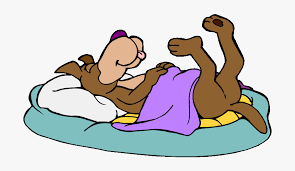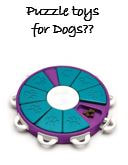The Importance of a Good Quality Dog Bed
by Friends of the Dog

For most of us, there is little that makes us feel better than a good nights sleep, and the same applies for our dogs. We spend an average of 6-8 hours in our beds, and when you realize that dogs spend about 12 - 18 hours a day sleeping, you can see that a good quality bed that gives the necessary support and comfort is a necessity.
Although you may find that your dog snuggles up to you at times during the night, when you are home, it is important that they have a comfortable bed to sleep on when you are not at home, or not in your own bed.
A good nights sleep improves memory
We know that a good night's sleep is essential for humans, especially when it comes to our memories and In an article we came across from Scientific American, it says that the same applies to dogs. In the article, it says that "Anna Kis of the Hungarian Academy of Sciences and colleagues—including members of the well-known Family Dog Project—set out to explore the relationship between sleep and memory in companion dogs. Their study involved two experiments: the first gave dogs a learning task and then peered into their sleep via non-invasive electroencephalogram (EEG)—a test that detects brain electrical activity using small electrodes attached to the scalp. The second experiment explored whether different type of post-learning activities (such as sleep) affect memory consolidation, both in the short- and long-term. All experiments were performed with consenting companion dogs and their helpful owners."
The results of these experiments were that "Not only did the sleep affect a dogs' learning, the learning affected the dogs's sleep". Really interesting articles and deserves a read.
What should you look for in a dog bed?
Train your dog to sleep in its own bed
Although many of us love having our dogs curled up with us in bed, especially when the weather is cooler, this is not always the best option if you have a dog that moves a round a lot, or if it is a large breed dog, as if can affect both our sleep and that of our dogs - if there is more than one dog on the bed, then the chances of good nights sleep are reduced, and of course if you have a dog that snores like our old Rotti did, the chances of a good nights sleep are drastically reduced!
It was previously thought that having a dog in the bedroom or in bed with us disturbed our sleep, however, in an article we found in Scientific American, research was done on this, they say that
"Humans with a single dog in their bedroom maintained good sleep efficiency; however, the dog's position on/off the bed made a difference. A dog's presence in the bedroom may not be disruptive to human sleep, as was previously suspected".
The scientific study by Dr. Christy L. Hoffman, a professor in Animal Behaviour, Ecology, and Conservation at Canisius College in New York tracked sleeping habits to find out whether sleeping next to a pet affects women’s sleep patterns.
And the results showed that those who slept next to a dog reported a better, more restful sleep than those who slept next to a cat, or another human. Apparently, dogs are less disruptive and we experience feelings of comfort and security when cuddling a pet pooch.
We feel that all dogs should learn to sleep on their own beds, as there are always occasions that you may not want the dog to be on the bed at all. This does not mean your dog can never sleep on your bed, of course it can, but on your invitation only.
About the only time, from a behaviour point of view, we will tell clients to keep their dogs off the bed, is when you have a dog that is Resource Guarding the owner or the bed itself. It could be that the dog is trying to prevent the owners partner from getting into bed, or that the dog will not allow another dog in the bed, and often, will not want another dog in the bedroom at all. With instances such as this, the reactive behaviour of the dog trying to prevent the 'intruder' from being in the room or on the bed, can easily escalate and aggression is often the end result. Mostly, in instances such as these, the human/canine social structure is out of balance, and it would a good idea to call in the services of a qualified behaviourist to get the help you need to change the behaviour.
Although you may find that your dog snuggles up to you at times during the night, when you are home, it is important that they have a comfortable bed to sleep on when you are not at home, or not in your own bed.
A good nights sleep improves memory
We know that a good night's sleep is essential for humans, especially when it comes to our memories and In an article we came across from Scientific American, it says that the same applies to dogs. In the article, it says that "Anna Kis of the Hungarian Academy of Sciences and colleagues—including members of the well-known Family Dog Project—set out to explore the relationship between sleep and memory in companion dogs. Their study involved two experiments: the first gave dogs a learning task and then peered into their sleep via non-invasive electroencephalogram (EEG)—a test that detects brain electrical activity using small electrodes attached to the scalp. The second experiment explored whether different type of post-learning activities (such as sleep) affect memory consolidation, both in the short- and long-term. All experiments were performed with consenting companion dogs and their helpful owners."
The results of these experiments were that "Not only did the sleep affect a dogs' learning, the learning affected the dogs's sleep". Really interesting articles and deserves a read.
What should you look for in a dog bed?
- It should big large enough for the dog so that it can stretch to its full length if it wants too.
- Dogs are not the cleanest of animals at times - they track in mud, grass and dirt, and are also dearly loved by fleas (don't forget to use pest control), so an important aspect is that the bed should be very easy to clean. A lot of the top quality beds supply a cover that can be taken off and easily washed, or an inner bed which can be removed. This is especially important when you have an older dog that may be incontinent, or with a young pup that is not fully toilet trained. Some beds are able to be put directly into the washing machine.
- Many of the good quality beds supply beds where there is a rim around them, and these rims are usually softer than the actual bed - yes, just like a lovely soft pillow that we use! These are great for the dog that loves to cuddle into something soft.
- A bed that is thick enough to support joints is your best option. This helps with the developing joints of pups and also our Golden Oldies.
- If your dog does have joint issues, then look for an Orthopedic bed that will give additional support and help to relieve pressure points.
- Many of the good quality dog beds, especially Orthopedic mats and beds, have an anti-slip feature so that they stay in place and don't go skidding around.
Train your dog to sleep in its own bed
Although many of us love having our dogs curled up with us in bed, especially when the weather is cooler, this is not always the best option if you have a dog that moves a round a lot, or if it is a large breed dog, as if can affect both our sleep and that of our dogs - if there is more than one dog on the bed, then the chances of good nights sleep are reduced, and of course if you have a dog that snores like our old Rotti did, the chances of a good nights sleep are drastically reduced!
It was previously thought that having a dog in the bedroom or in bed with us disturbed our sleep, however, in an article we found in Scientific American, research was done on this, they say that
"Humans with a single dog in their bedroom maintained good sleep efficiency; however, the dog's position on/off the bed made a difference. A dog's presence in the bedroom may not be disruptive to human sleep, as was previously suspected".
The scientific study by Dr. Christy L. Hoffman, a professor in Animal Behaviour, Ecology, and Conservation at Canisius College in New York tracked sleeping habits to find out whether sleeping next to a pet affects women’s sleep patterns.
And the results showed that those who slept next to a dog reported a better, more restful sleep than those who slept next to a cat, or another human. Apparently, dogs are less disruptive and we experience feelings of comfort and security when cuddling a pet pooch.
We feel that all dogs should learn to sleep on their own beds, as there are always occasions that you may not want the dog to be on the bed at all. This does not mean your dog can never sleep on your bed, of course it can, but on your invitation only.
About the only time, from a behaviour point of view, we will tell clients to keep their dogs off the bed, is when you have a dog that is Resource Guarding the owner or the bed itself. It could be that the dog is trying to prevent the owners partner from getting into bed, or that the dog will not allow another dog in the bed, and often, will not want another dog in the bedroom at all. With instances such as this, the reactive behaviour of the dog trying to prevent the 'intruder' from being in the room or on the bed, can easily escalate and aggression is often the end result. Mostly, in instances such as these, the human/canine social structure is out of balance, and it would a good idea to call in the services of a qualified behaviourist to get the help you need to change the behaviour.
|
Puzzle toys for dogs?? Yes, and they are fantastic! Not only do they keep a dog busy, stimulate it mentally, they can also assist in preventing and reducing behaviour problems.
|
Do those lovely dental chews that so many dog love, really help to prevent dental problems?
|
All dogs chew, but professionals chewing can be a problem, and there is always a reason why this occurs - find out the reasons why this may develop
|





